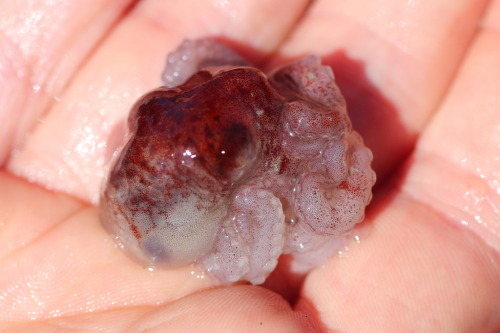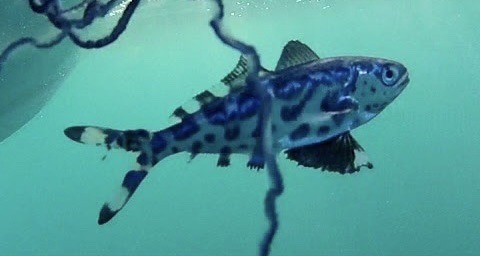Call Me Sessile Because I'm Attached To One Place (you)
Call me sessile because I'm attached to one place (you)
benthic rizz
More Posts from Mermaidfrenzy and Others
Phylum #1: Ctenophora, the comb jellies!



For quite a long time, it was believed that sponges were our most distant cousins, standing on the opposite side of the animal tree of life. Turns out it isn't the case - shiny, jelly-like creatures are the most alien of animals!
But these aren't true jellyfish, or anything close! Comb jellies don't sting, and don't have much in common with jellyfish except in appearance - in fact, they likely evolved most of their body plan completely independently!
They get their name from the rows of combs going down their body, with which they swim. These can often reflect light in unusual way, bringing a gamer vibe in the ocean depths!
Comb jellies come in a variety of shapes and sizes, not all jelly-like. Some scurry on the seafloor, while others look like huge floating ribbons. And some are even voracious predators, hunting... other comb jellies!




Daily Cephalopod #57

This is a metal snail (Volcano Snail) that lives on underwater volcano vents in the Indian Ocean. Its shell and scaly feet both are armoured with layers of iron, making it the only animal to incorporate iron sulfide into its skeleton 🐌
📷: Dr Chong Chen/IUCN

I made the t-shirt design I wanted, so it's on Redbubble if anyone else want it too or whatever

the feminine urge to neglect all my responsibilities fail out of grad school and draw uncountably many nudibranchs
(watercolour wip)
Today is Wet Beast Wednesday!
Today’s wet beast is: Man-of-war Fish


Olive’s wet beast fact: this little fishy has evolved to live within the extremely dangerous tentacles of the Portuguese Man O’ War. It is here that the fish feasts upon their gonads. Happy Pride.
Stay tuned for more Wet Beast Wednesdays!
hello 🐙
Shark Dump: Lemon Sharks!
Some of you seemed to enjoy my shark facts and honestly, if I can get the chance to rave about sharks, I will. So here are some shark facts starting with my favorite, Lemon Sharks!!
If you guys enjoy this, feel free to leave me a request with the name of a shark you'd like to learn about and I'll be happy to info dump on them. I'm thinking about posting one every Sunday (Shark Sundays!!! :D )
Technically I was supposed to post this earlier but I didn't lol oops-

Conservation Status: NEAR THREATENED
This cute guy here is a Lemon shark or Negaprion brevirostris! They get this name from their yellowish skin and yellow bellies but they can be anywhere from brown to olive colored. Lemon sharks are mostly native to the Atlantic Ocean and parts of the Pacific where they occupy coral keys, mangrove forests, bays and even docks. Most populations can be found in Gulf of Mexico, the West Indies, and the Caribbean.
They can grow up to 11 ft long which makes them one of the larger species of sharks but don't let their size scare you! These guys are mostly scavengers that hunt for food near sandy in-shore areas. Most of the lemon sharks diet consists of bony fish, crustaceans and stingrays although they occasionally snack on seabirds or smaller sharks. They hunt using electroreceptors on their nose, called ampullae de Lorenzini, which help them detect fish and other creatures, even buried in the sand.
(Remember, sharks don't have hands so they rely on their nose and mouth to explore the enviroment around them!)
Lemon sharks usually live in oceanic waters that are no deeper than 188 ft although some have been found in waters at depths of up to 300 ft. They are one of 43 sharks that can swim in freshwater but usually don't travel very far into these waters as they can't survive for long periods in them. If you see a lemon shark in freshwater, they're probably just there for a quick bite to eat before heading back to the ocean.
Fun Fact: Bull sharks are the only shark that can survive in both salt and fresh water! They're also one of the dumber sharks and will try to eat anything that fits in their mouths.
Despite how scary they look, lemon sharks are actually a favorite among divers and marine biologist because of their docile behavior! They rarely attack humans (As of 2011, researchers had found only 10 cases of lemon sharks attacking humans, and none of these cases were deadly), in fact, they are very shy and usually try to avoid us. Though if they do approach, they're usually just being curious and will bump you with their nose.

But my favorite thing about lemon Sharks? Once they get over their shyness, they LOVE getting belly rubs! They find the sensation very pleasant and will actively seek out the divers who pet them, even chasing other sharks away if they feel the diver’s giving them too much attention. Sometimes, if you rub their belly too much or if you stimulate the tiny sensory pores located on their snout, you can put them into something called tonic immobility.
Tonic immobility is a reflex that causes a temporary state of inactivity in an animal. Similar to hypnosis! Researchers aren't sure why sharks do this as it's usually thought to be a prey instinct so apex predators like sharks shouldn't have this. But most researchers have found that the sharks aren't stressed when they perform this behavior so it might just mean they're really relaxed! This is backed up by the fact that when in this state the shark’s muscles relax and their breathing becomes deep and rhythmic. Sharks usually enter tonic immobility in less than a minute and they can remain in this state for up to 15 minutes. It doesn't hurt them at all and researches use this to help subdue them.
Lemon sharks (like many other sharks) are imperative to keeping our reefs alive and healthy. Without them, we've already begun to see a major decline in coral reefs and seagrass beds. By taking these sharks out of the coral reef ecosystem, there's nothing to keep the larger predatory fish in check and they overfeed on the herbivores. With less herbivores, macroalgae expands and coral can no longer compete, shifting the ecosystem to one of algae dominance causing the reefs to eventually die out.
Now, back to lemon sharks and the most important fact I have about them: their conservation status.
Lemon sharks are considered to be near threatened. This means that they are likely to become endagered in the near future. This is because they are targeted by commercial and recreational fishermen primarily due to their highly prized fins. Their meat is also in high demand and is considered a delicacy in many areas. Further, the continuing destruction of their habitat has led to the severe decline of lemon shark populations.
But thankfully, there are steps already being taken to help protect these sweet sea puppies. The Florida Fish and Wildlife Conservation Commission prohibits the harvesting of lemon sharks in state waters. Any lemon shark that catches onto a hook is to be released immediately, either by removal of the hook from the shark or by cutting the shark free—whichever will release the shark quickest. Some countries are also slowly starting to put in protections for them as well.
You can also help! Many people view sharks as blood-thirsty monsters due to decades of slander campaigns and hollywood scare movies (I'm glaring at you Jaws). But we can change that view by showing the world just how beautiful and intelligent these creatures really are! The more informed people are about the sharks, the more we can do to help them. Just by reading this post and learning about lemon sharks, you're helping! Now, the next time you hear someone talking smack about sharks, you can smack them with some cool shark facts! Then hopefully with enough smacking, we can change how people see these lovely predators and get more support for their protection.
NEW FISH JUST DROPPED

-
 aneurizma liked this · 1 year ago
aneurizma liked this · 1 year ago -
 nico-says-stuff liked this · 1 year ago
nico-says-stuff liked this · 1 year ago -
 jigsawed-in-half liked this · 1 year ago
jigsawed-in-half liked this · 1 year ago -
 jar-of-men liked this · 1 year ago
jar-of-men liked this · 1 year ago -
 rathuks liked this · 1 year ago
rathuks liked this · 1 year ago -
 vicenzo-neric liked this · 1 year ago
vicenzo-neric liked this · 1 year ago -
 tenvaka liked this · 1 year ago
tenvaka liked this · 1 year ago -
 misharu-01 liked this · 1 year ago
misharu-01 liked this · 1 year ago -
 gothfrog-44 reblogged this · 1 year ago
gothfrog-44 reblogged this · 1 year ago -
 gothfrog-44 liked this · 1 year ago
gothfrog-44 liked this · 1 year ago -
 featherboabear reblogged this · 1 year ago
featherboabear reblogged this · 1 year ago -
 indecisivebitch3000 liked this · 1 year ago
indecisivebitch3000 liked this · 1 year ago -
 unabasheddelusionstarfish liked this · 1 year ago
unabasheddelusionstarfish liked this · 1 year ago -
 mermaidfrenzy reblogged this · 1 year ago
mermaidfrenzy reblogged this · 1 year ago -
 supersonic-rocket-ship reblogged this · 1 year ago
supersonic-rocket-ship reblogged this · 1 year ago
